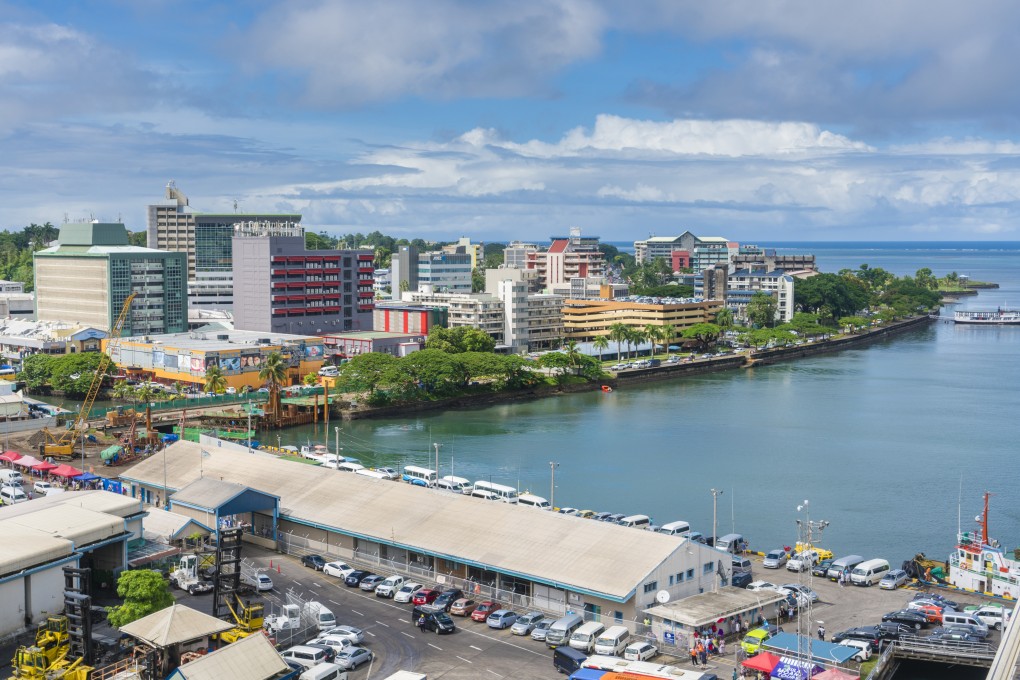Taiwan suffers another diplomatic blow as Fiji pulls the plug on representative office’s name change
- Facing pressure from Beijing, Pacific island nation backtracks after agreeing in March to let Taipei mission reinstate title and diplomatic privileges
- Taiwanese foreign ministry condemns mainland China for ‘belittling our sovereignty’ and voices regret over Suva’s failure to ‘uphold its position’

The Taiwanese office in Suva was known as the Trade Mission of the Republic of China (Taiwan) to the Republic of Fiji and enjoyed diplomatic privileges despite the lack of an official relationship.
In March, the new Fiji coalition government, which is friendly to Taipei, allowed Taiwan to reinstate the mission’s former name and its diplomatic privileges – a move that drew sharp protests from Beijing, which established official ties with the Pacific island nation in 1975.
But on Thursday, Taiwan’s foreign ministry said Fiji’s three-party coalition government had decided to put on hold the restoration of the mission’s official title and diplomatic privileges due to intense pressure from Beijing.
“After the Fiji government decided to restore the official title of our mission, the Chinese embassy there not only protested against the move but also threatened to take retaliatory actions,” the Taiwanese ministry said in a statement.